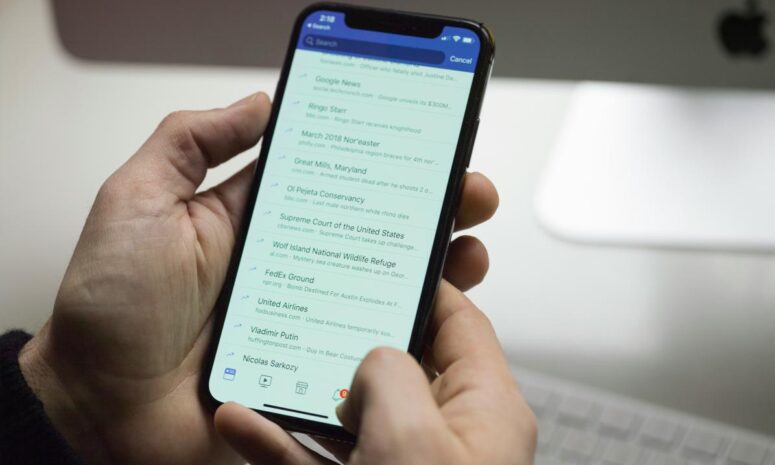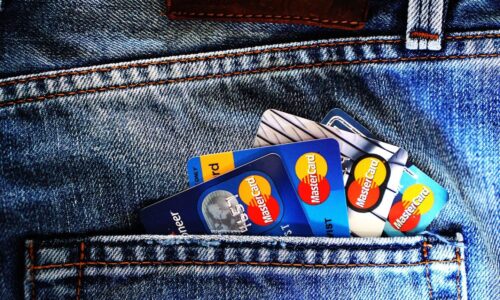
The Ultimate Guide to Budgeting Apps: Find the Best Fit for You
Introduction: Budgeting apps have revolutionized the way we manage our finances, making it easier than ever to keep track of expenses and savings. But with so many options available, how do you choose the right budgeting app for you? We’ve compiled a comprehensive guide to help you navigate the world of budgeting apps, providing you with the information you need to make an informed decision.
Whether you’re looking for a simple way to track everyday spending or a robust tool to manage your entire financial portfolio, there’s a budgeting app out there for everyone. This guide will break down the features, costs, and benefits of the top budgeting apps, helping you find the perfect match for your financial needs.
What actually are budgeting apps, and how do they really work?
Budgeting apps are software programs or mobile applications designed to help you manage your personal finances. They typically offer features such as expense tracking, budget planning, and financial analysis. By integrating with your bank accounts, these apps may automatically categorise your expenses and provide information on your spending habits.
When you use a budgeting app, you can set financial goals, monitor your monthly spending, and create customized budgets. Some apps even offer advanced features like investment tracking and debt management. With so many options available, it’s important to find an app that aligns with your budgeting strategy and financial goals.
What are the most important features to look for in budgeting apps?
When selecting budgeting software, examine the most critical aspects for you. Common budgeting features include expense tracking, budget creation, and financial goal setting. Other advanced features may include customizable spending categories, investment tracking, and personalized recommendations.
Some apps offer specific budgeting tools, like zero-based budgeting or envelope budgeting systems. If you have particular budgeting needs, look for an app that specializes in those areas. Additionally, consider whether the app supports multiple devices and platforms, offers a good user experience, and provides reliable customer support.
What Are the Top Budgeting Apps for Beginners?
If you’re new to budgeting apps, starting with a user-friendly option can make the transition smoother. Apps like Goodbudget and Fudget are excellent choices for beginners. Goodbudget uses an envelope budgeting system, which can help you visualize where your money is going and make more mindful spending choices.
Fudget, on the other hand, offers a more straightforward approach to budgeting, making it ideal for those looking for basic budgeting features. Both apps are available on the iOS App Store and Google Play. They are easy to set up, and they offer great introductions to personal finance management.
What Apps Offer Advanced Budgeting Features?
For those looking for more advanced features, apps like YNAB (You Need a Budget) and Mint are worth considering. YNAB is renowned for its zero-based budgeting framework, which helps you assign every dollar a job, ensuring that your income and expenses balance out. It also offers detailed reports that help you analyze your financial health.
Mint, meanwhile, offers comprehensive tools for tracking expenses, budgets, investments, and even your credit score. It’s an all-in-one solution for those who want to manage multiple facets of their finances from a single platform. Both apps offer a premium version with additional features, making them suitable for users seeking a more robust financial planning tool.
Is free budgeting software just as effective as paid options?
Free budgeting apps can be just as effective as their paid counterparts, depending on your needs. Apps like PocketGuard and Simple offer free plans that include essential budgeting features such as expense tracking and budget creation. These apps are ideal for users looking for cost-effective solutions without compromising on functionality.
However, paid budgeting apps often offer advanced features such as customized spending reports, investment tracking, and enhanced security options. If you have specific budgeting requirements or need more in-depth financial analysis, investing in a premium app might be worth the cost. It’s important to weigh the benefits against the subscription costs to determine which option best suits your needs.
How Do Budgeting Apps Integrate with Other Financial Tools?
Many budgeting apps integrate with other financial tools to provide a more comprehensive view of your finances. For instance, apps like Quicken and Personal Capital offer integration with investment accounts, savings accounts, and even financial planners. This allows you to track your net worth and general financial wellness from a single location.
Moreover, some apps offer integration with popular software programs like QuickBooks and Google Sheets, making it easier to export and analyze your financial data. By linking your budgeting app to other financial tools, you can gain deeper insights into your spending patterns and make more informed decisions about your personal finances.
How Important Is Security When Using Budgeting Apps?
Security is a critical consideration when using budgeting apps. Since these apps often connect to your bank accounts and store sensitive financial information, it’s essential to choose apps with robust security measures. Look for apps that offer encryption, two-factor authentication, and other security features to protect your data.
Many reputable apps undergo regular security audits and comply with industry standards to ensure your information remains safe. Reading user reviews and researching the app’s security features can provide additional peace of mind. Remember, safeguarding your personal finances is as important as tracking your expenses and savings.
Can budgeting apps help with investment tracking?
Yes, many budgeting apps offer features for tracking investments, making it easier to monitor your financial portfolio. Apps like Personal Capital and Mint provide tools to track investment performance, analyze fees, and make informed decisions about your investment strategy. These features can be especially helpful for users with diverse financial portfolios.
Tracking your investments alongside your expenses and budgets can give you a holistic view of your finances, helping you identify opportunities for growth and areas where you can cut costs. Whether you’re a seasoned investor or just starting out, integrating investment tracking into your budgeting app can enhance your financial management.
What are the advantages of zero-based budgeting applications?
Zero-based budgeting apps, such as YNAB, assign every dollar a job, ensuring that your income and expenses are balanced. This approach encourages proactive financial planning and helps you avoid overspending. With a zero-based budgeting app, you can create a detailed budget that aligns with your financial goals.
These apps often provide features like customizable spending categories and detailed spending reports, making it easier to track your financial progress. Zero-based budgeting can be particularly beneficial for users looking to gain greater control over their finances and ensure that every dollar is accounted for.
How do envelope budgeting applications work?
Envelope budgeting apps, such as Goodbudget, allow you to allocate monies to different expenditure categories, much like the classic envelope approach. This method helps you visualize your spending and make more conscious financial decisions. With envelope budgeting, you can set specific limits for each category and track your expenses in real time.
Goodbudget and similar apps offer customizable envelopes, allowing you to tailor your budget to your unique financial situation. This approach can be especially helpful for users looking to manage discretionary spending and ensure that they stay within their budget limits.
What are the most effective budgeting applications for couples?
Budgeting apps for couples, like Honeydue and Zeta, offer features designed to help partners manage their finances together. These apps allow you to share budgets, track joint expenses, and set financial goals as a team. They provide transparency and facilitate communication about money matters, making it easier to stay on the same page financially.
Honeydue offers features like bill reminders and expense categorization, while Zeta provides tools for managing shared accounts and tracking net worth. These apps are designed to support couples in building a strong financial foundation together.
Budgeting apps: how can they help with debt management?
Many budgeting apps offer tools to help you manage and pay off debt. Apps like Undebt.it and Debt Payoff Planner provide features for tracking debt balances, setting repayment goals, and creating customized debt payoff plans. These tools might help you stay organized and motivated while working toward debt independence.
Additionally, apps like YNAB include debt management features, allowing you to prioritize debt payments within your overall budget. By incorporating debt management into your budgeting app, you can develop a comprehensive plan to tackle your financial obligations and achieve your financial goals.
How Can Budgeting Apps Assist with Savings Goals?
Budgeting apps can be instrumental in helping you achieve your savings goals. Features like automatic savings transfers, goal tracking, and progress visualization can keep you motivated and on track. Apps like Qapital and Simple offer tools specifically designed to help you save for specific goals, such as vacations, emergency funds, or major purchases.
By setting savings goals within your budgeting app, you can allocate funds towards those goals and monitor your progress. This proactive approach to saving can help you build a financial cushion and achieve your long-term objectives.
Which are the best budgeting applications for students?
For students, managing funds can be especially challenging. Budgeting apps like Simple and PocketGuard offer features that cater to the unique financial needs of students. These apps provide tools for tracking tuition expenses, managing part-time income, and setting budgets for everyday expenses like groceries and entertainment.
Simple offers a user-friendly interface with budgeting tools that help students stay organized and avoid overspending. PocketGuard’s intuitive features make it easy to monitor spending and identify areas where you can save money. Both apps are available on the iOS App Store and Google Play, making them accessible to a wide range of users.
Should You Consider Paid or Free Budgeting Apps?
When choose between premium and free budgeting tools, think about your individual needs and preferences. Free apps like Mint and PocketGuard offer essential budgeting features without a cost, making them excellent choices for users looking for basic functionality. However, these apps may include ads or have limitations on certain features.
Paid apps like YNAB and Quicken offer advanced features, enhanced security, and an ad-free budgeting experience. If you require more in-depth financial analysis or prefer a premium user experience, investing in a paid app might be worth the subscription costs. Evaluate the features and benefits of each option to determine which app best suits your budgeting style.
What Role Do Mobile Apps Play in Budgeting?
Mobile apps have become an integral part of budgeting, providing convenience and accessibility. With mobile apps, you can track expenses, monitor budgets, and manage your finances on the go. This real-time access to financial data helps you make informed decisions and stay on top of your financial goals.
Apps like Goodbudget and Fudget offer mobile applications that sync across multiple devices, ensuring that your financial information is always up-to-date. The convenience of mobile apps can significantly enhance your ability to manage your personal finances effectively.
How Do Budgeting Apps Help with Financial Wellness?
Budgeting apps promote financial wellness by providing tools and resources that help you manage your money more effectively. By tracking expenses, monitoring budgets, and setting financial goals, these apps encourage mindful spending and saving habits. Apps like Simple and PocketGuard offer insights into your spending patterns, helping you identify areas for improvement.
By using a budgeting app, you can gain greater control over your finances, reduce financial stress, and achieve a more balanced financial life. The insights and tools provided by these apps can empower you to make better financial decisions and work towards your long-term financial goals.
How Do You Choose the Best Budgeting App for You?
Choosing the best budgeting app for you depends on your unique financial needs and preferences. Consider factors like the app’s features, ease of use, cost, and security. Evaluate the app’s ability to integrate with other financial tools and its compatibility with your devices.
Reading user reviews and researching the app’s features can provide valuable insights into its performance and reliability. By taking the time to assess your needs and explore different options, you can find the budgeting app that best fits your financial goals and lifestyle.
FAQ:
What exactly is a budgeting app?
A budgeting app is a software tool or mobile application designed to help you manage your personal finances by tracking expenses, setting budgets, and providing financial insights.
Are budgeting applications that are free effective?
Yes, free budgeting applications can effectively manage your cash. They offer essential budgeting features without cost, though they may have limitations compared to paid versions.
How Do Budgeting Apps Integrate with Other Financial Tools?
Many budgeting apps integrate with other financial tools like investment accounts, savings accounts, and financial planners, providing a comprehensive view of your finances.
Can a budgeting application help with debt management?
Yes, many budgeting apps offer tools specifically designed for debt management, including tracking debt balances and creating customized debt payoff plans.
What features should a budgeting app have?
Look for features such as expense tracking, budget creation, goal setting, investment tracking, and robust security measures when choosing a budgeting app.
Conclusion:
Selecting the right budgeting app can transform your approach to managing personal finances, providing you with the tools and insights needed to achieve your financial goals. Whether you’re a beginner or looking for advanced features, there’s a budgeting app tailored to your needs. From zero-based budgeting to envelope systems, the options are diverse and cater to various budgeting styles.
By assessing your specific requirements, you can find an app that offers the right balance of features, ease of use, and cost. Budgeting apps can help you achieve financial wellness by promoting mindful spending, savings, and debt management. Embark on your journey to better financial health today by choosing a budgeting app that fits your lifestyle and goals.
Citations to this article:
- The Motley Fool, Best Budgeting Apps for 2024, The Motley Fool, August 30, 2024
- Bankrate, Best Budgeting Apps Of 2024, Bankrate, January 30, 2024, August 30, 2024
- Investopedia, Best Budgeting Apps for September 2024, Investopedia, August 30, 2024
- NerdWallet, The Best Budget Apps for 2024, NerdWallet, August 14, 2024, August 30, 2024
- CNBC, Best budgeting apps of September 2024, CNBC, August 22, 2024, August 30, 2024
- Fortune Recommends, The 10 best budgeting apps for 2024, Fortune Recommends, August 30, 2024
- The Wall Street Journal, The 5 Best Budgeting Apps to Make Managing Your Money Easier in 2024, The Wall Street Journal, August 23, 2024, August 30, 2024
- Forbes, Best Budgeting Apps Of September 2024, Forbes, August 27, 2024, August 30, 2024
Post Disclaimer
The information contained in this post is for general information purposes only. The information is provided by The Ultimate Guide to Budgeting Apps: Find the Best Fit for You and while we endeavour to keep the information up to date and correct, we make no representations or warranties of any kind, express or implied, about the completeness, accuracy, reliability, suitability or availability with respect to the website or the information, products, services, or related graphics contained on the post for any purpose.




